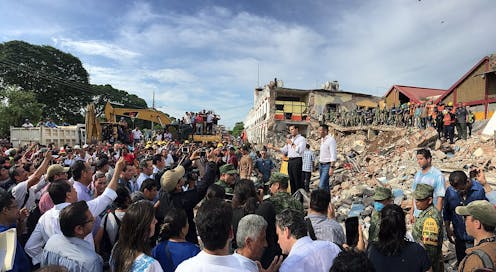In Mexico, undocumented migrants risk deportation to aid earthquake victims
- Written by Luis Gómez Romero, Senior Lecturer in Human Rights, Constitutional Law and Legal Theory, University of Wollongong
 Undocumented migrants are among those helping to rebuild the hardest-hit areas of Oaxaca state, where federal aid has been slow to trickle down.Presidencia de la República Mexicana CC-by-2.0, CC BY-SA
Undocumented migrants are among those helping to rebuild the hardest-hit areas of Oaxaca state, where federal aid has been slow to trickle down.Presidencia de la República Mexicana CC-by-2.0, CC BY-SAAfter two earthquakes that left more than 450 dead and 150,000 houses damaged, my home country of Mexico faces huge challenges in recovery.
Acc...
Read more: In Mexico, undocumented migrants risk deportation to aid earthquake victims

